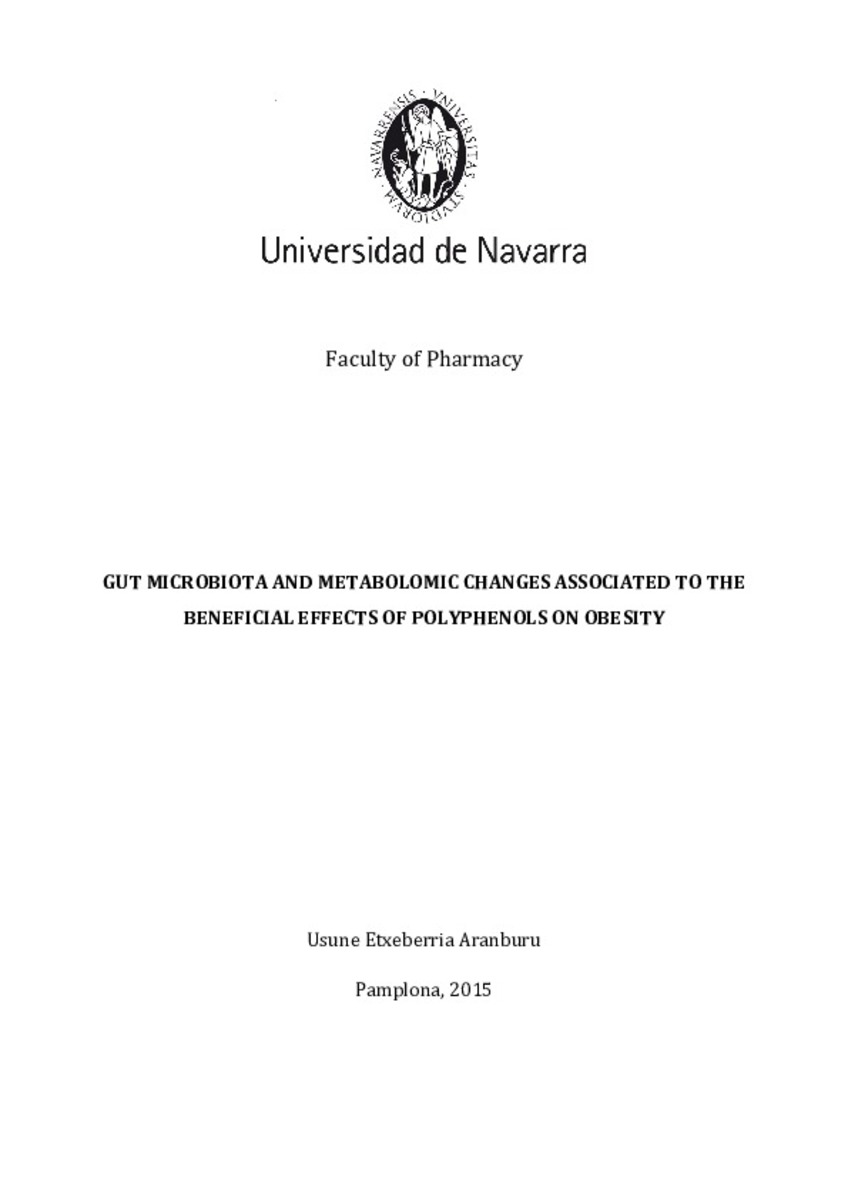Gut microbiota and metabolomic changes associated to the beneficial effects of polyphenols on obesity
Palabras clave :
Enfermedades de la nutrición
Digestión
Materias Investigacion::Ciencias de la Salud::Nutrición y dietética
Fecha de publicación :
21-nov-2019
Fecha de la defensa:
14-dic-2015
Cita:
ETXEBERRIA ARANBURU, Usune. “Gut microbiota and metabolomic changes associated to the beneficial effects of polyphenols on obesity”. Milagro, F. I. y Martínez, A. (dirs.). Tesis doctoral. Universidad de Navarra, Pamplona, 2015.
Aparece en las colecciones:
Estadísticas e impacto
0 citas en

0 citas en

Los ítems de Dadun están protegidos por copyright, con todos los derechos reservados, a menos que se indique lo contrario.







